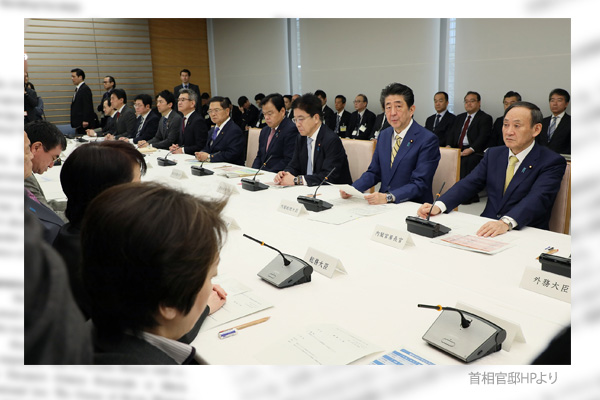The number of people infected with the novel coronavirus that broke out in Wuhan, Hebei Province, China, exceeded 10,000 in China as of February 2, including more than 300 who died. The new pneumonia epidemic has spread from China to 26 countries and regions including Japan. The World Health Organization has declared an emergency due to the epidemic. Based on its Immigration Control Act, the Japanese government has decided to refuse entry to foreigners who stayed in Hebei Province within the past two weeks and to those who have Chinese passports issued in the province. It has also designated the new pneumonia as a “quarantinable infectious disease” under the Quarantine Act and as a “designated infectious disease” under the Infectious Diseases Act, paving the way for health checks on arrivals suspected as infected with the disease and for work restrictions and compulsory hospitalization of infected patients.
Legal system defects constrain government measures
Although the decision may have been taken as a little too late, the Abe administration should be appreciated for taking the unprecedented measure to refuse entry to specific foreigners suspected as infected with an infectious disease. It should also be applauded for accelerating the effectuation of government ordinances for the designation.
Given that people infected with the novel coronavirus, unlike those infected with Ebola hemorrhagic fever, cannot be quarantined under the Infectious Diseases Act, however, the Japanese government, unlike foreign governments, has failed to compulsorily quarantine citizens who have returned home from Wuhan using government-chartered flights.
As most of those who returned from Wuhan hoped to stay at government-arranged facilities, they have eventually been quarantined temporarily. However, the improvement of legal system may be required for quarantining those infected with infectious diseases. The question is whether the development of laws alone would suffice.
Emergency clause should be put into constitution
At the time of the 2011 Great East Japan Earthquake, the government hesitated to restrict panic buying of gasoline and kerosene as stipulated in the Basic Act for Disaster Countermeasures or dispose debris of houses and household goods in view of constitutional rights such as freedom to choose occupations (including freedom of economic activities) and property rights.
We need the development of laws. But we also need to think about creating a constitutional clause that forms the basis of such laws. This is because some people are expected to question if any law for quarantining the infected can restrict constitutional rights such as the freedom to choose or change residences and the freedom from arbitrary deprivation of liberty.
Regarding the novel coronavirus epidemic, former House of Representatives Speaker Bunmei Ibuki and Japan Innovation Party Secretary General Nobuyuki Baba argued that some emergency clause is required in the constitution to overcome any national emergency and protect the people. However, Constitutional Democratic Party of Japan leader Yukio Edano made startling statements that everything to prevent infectious diseases from spreading can be done under the present legal system and has nothing to do with the constitution.
The general public are beginning to doubt if everything is all right at present. Lawmakers should acknowledge that they are gravely responsible for frankly accepting such common doubt and seriously discussing the need to develop laws and amend the constitution to protect the people’s lives and health.
Akira Momochi is a director of the Japan Institute for National Fundamentals and a special professor at Kokushikan University.


